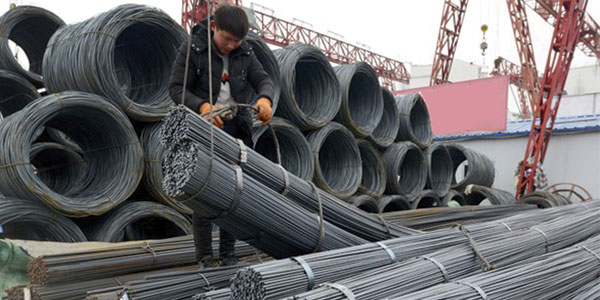
By Chara
On May 31, President Trump announced the United States would impose tariffs on U.S. trading partners, including Canada and Mexico.
“We’ll be imposing tariffs on steel imports and tariffs on aluminum imports,” Trump said during a speech at the White House. “You will have protection for the first time in a long while, and you’re going to regrow your industries.”
The tariffs will be 25 percent on foreign-made steel and 10 percent on aluminum. With the tariffs, Trump hopes to encourage U.S. companies to buy those materials from U.S. producers. Mexico, Canada and Brazil are the top countries that send steel to the United States, with Canada, Russia and China being the top aluminum providers.
However, many analysts have criticized Trump’s decision, claiming it will raise prices on everyday products that include aluminum and steel, such as aluminum cans. Moreover, the announcement has drawn criticism from foreign leaders. Canadian Prime Minister Justin Trudeau, for one, has called tariffs “unacceptable.”
“These tariffs are an affront to the longstanding security partnership between Canada and the United States – and in particular, an affront to the thousands of Canadians who have fought and died alongside their American brothers in arms,” Trudeau told reporters during a press conference.
Mexico has already retaliated by imposing tariffs against the United States on apples, grapes, cheese, flat steel and pork.
“It sends a clear message that this kind of thing does not benefit anybody,” Mexican Economic Minister Idelfonso Guajardo stated during a recent Mexican radio interview. “Because in the end, the effect will fall on voters and citizens that live in districts where the people have a voice and vote in the (U.S.) Congress.”
House Speaker Paul Ryan also disagreed with the measure.
“Instead of addressing the real problems in the international trade of these products, today’s action targets America’s allies, when we should be working with them,” Ryan said in a statement, published by the Los Angeles Times and other news agencies.
El gobierno de Trump impone nuevas tarifas de acero y aluminio
El 31 de mayo, el presidente Trump anunció que Estados Unidos impondría aranceles a los socios comerciales de EE. UU., incluyendo a Canadá y México.
“Impondremos aranceles a las importaciones de acero y de aluminio”, dijo Trump durante un discurso en la Casa Blanca. “Tendrá protección por primera vez en mucho tiempo y va a volver a crecer sus industrias”.
Los aranceles serán del 25 por ciento para el acero fabricado en el extranjero y del 10 por ciento para el aluminio. Con los aranceles, Trump espera alentar a las empresas de Estados Unidos a comprar esos materiales a productores de EE. UU. México, Canadá y Brasil son los principales países que envían acero a Estados Unidos, y Canadá, Rusia y China son los principales proveedores de aluminio.
Sin embargo, muchos analistas han criticado la decisión de Trump, alegando que aumentará los precios en productos cotidianos que incluyen aluminio y acero, como latas de aluminio. Además, el anuncio ha atraído críticas de líderes extranjeros. El primer ministro canadiense, Justin Trudeau, por ejemplo, calificó los aranceles como “inaceptables”.
“Estos aranceles son una ofensa a la asociación de seguridad de mucho tiempo entre Canadá y Estados Unidos y, en particular, una ofensa a los miles de canadienses que han luchado y muerto junto a sus hermanos estadounidenses en batalla”, dijo Trudeau a los periodistas durante una conferencia de prensa.
México ya ha tomado represalias imponiendo aranceles contra Estados Unidos en manzanas, uvas, queso, acero plano y carne de cerdo.
“Envía un mensaje claro de que este tipo de cosas no benefician a nadie”, declaró el ministro de Economía de México, Idelfonso Guajardo, durante una reciente entrevista de radio en México. “Porque al final, el efecto recaerá sobre los votantes y los ciudadanos que viven en distritos donde la gente tiene voz y voto en el Congreso (de EE. UU.)”.
El presidente de la Cámara, Paul Ryan, también estuvo en desacuerdo con la medida.
“En lugar de abordar los problemas reales en el comercio internacional de estos productos, la acción de hoy apunta a los aliados de Estados Unidos, cuando deberíamos trabajar con ellos”, dijo Ryan en un comunicado, publicado por Los Angeles Times y otros medios de comunicación.









